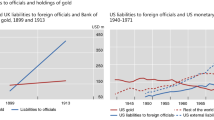Abstract
This commentary examines how closely Odling-Smee and Pastor (2002)'s account and their defense of the IMF's role matches the known facts and evidence on the Ruble Zone. This evidence shows that in the 12-24 months following the Soviet collapse, the IMF took the view that the prompt introduction of new currencies in the successor states would be more dangerous and damaging than sticking to the ruble. This article questions the assumptions behind this view, and argues that it was not correct for the IMF to confine itself to advising on the pros and cons of either course. The decisions by Post-Soviet states on the currency issue had a key bearing on whether IMF financial assistance would be forthcoming making, the IMF's ‘neutrality’ as recorded by the authors objectionable in principle. The bias of IMF advice in favor of retaining the Ruble Zone reflected many other interests besides Russia's own. The real aim of this commentary is not point-scoring in long-past debates, but to share an historical understanding.
Similar content being viewed by others
Author information
Authors and Affiliations
Rights and permissions
About this article
Cite this article
Granville, B. The IMF and the Ruble Zone: Response to Odling-Smee and Pastor. Comp Econ Stud 44, 59–80 (2002). https://doi.org/10.1057/ces.2002.19
Published:
Issue Date:
DOI: https://doi.org/10.1057/ces.2002.19




